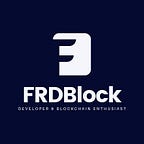Introduction
Ethereum, one of the most prominent blockchains, enables the development of decentralized applications (dApps) through its smart contract language, Solidity. While Solidity excels in handling on-chain data, integrating off-chain data (information that resides outside the blockchain) is crucial for many practical applications. This is where oracles come into play. Oracles bridge the gap between off-chain data and blockchain smart contracts, enabling the blockchain to interact with real-world information.
This article explores the concept of oracles, their importance, and the methods of integrating off-chain data into Solidity smart contracts, providing a detailed technical overview for developers and blockchain enthusiasts.
Understanding Oracles
What are Oracles?
Oracles are third-party services that provide smart contracts with external data. They act as intermediaries, fetching data from the real world and supplying it to the blockchain, which is inherently isolated from the external environment. This data can include anything from financial market prices, weather conditions, sports results, to IoT sensor information.
Types of Oracles
- Inbound Oracles: Provide data from external sources to the blockchain.
- Outbound Oracles: Send data from the blockchain to external systems.
- Software Oracles: Retrieve data from online sources such as APIs, websites, and databases.
- Hardware Oracles: Gather data from the physical world using IoT devices.
- Consensus-based Oracles: Aggregate data from multiple sources and use consensus mechanisms to determine the most accurate data.
Importance of Oracles
Oracles are crucial because they expand the capabilities of smart contracts, enabling them to respond to real-world events. Without oracles, the utility of smart contracts would be limited to on-chain activities, severely restricting their potential applications.
Integrating Off-chain Data in Solidity
Integrating off-chain data involves several steps and considerations. Here, we delve into the technicalities of using oracles with Solidity, focusing on Chainlink, the most widely used oracle network.
Chainlink: The Leading Oracle Network
Chainlink is a decentralized oracle network that provides reliable tamper-proof inputs and outputs for complex smart contracts. It enables smart contracts to securely interact with external data sources and APIs.
Setting Up Chainlink Oracles in Solidity
Prerequisites
Before we dive into the code, ensure you have the following:
- Node.js: For installing development tools.
- Truffle or Hardhat: Ethereum development environments.
- Metamask: Ethereum wallet for managing accounts and interacting with the blockchain.
- Link Tokens: Required for paying the oracles.
Step-by-Step Integration
- Install Dependencies:
Begin by installing the necessary dependencies.
npm install @chainlink/contracts truffle-hdwallet-provider2. Set Up the Solidity Smart Contract:
Create a new Solidity file (e.g., DataConsumerV3.sol) and import the Chainlink contracts.
// SPDX-License-Identifier: MIT
pragma solidity ^0.8.7;
import {AggregatorV3Interface} from "@chainlink/contracts@1.1.0/src/v0.8/shared/interfaces/AggregatorV3Interface.sol";
/**
* THIS IS AN EXAMPLE CONTRACT THAT USES HARDCODED
* VALUES FOR CLARITY.
* THIS IS AN EXAMPLE CONTRACT THAT USES UN-AUDITED CODE.
* DO NOT USE THIS CODE IN PRODUCTION.
*/
/**
* If you are reading data feeds on L2 networks, you must
* check the latest answer from the L2 Sequencer Uptime
* Feed to ensure that the data is accurate in the event
* of an L2 sequencer outage. See the
* https://docs.chain.link/data-feeds/l2-sequencer-feeds
* page for details.
*/
contract DataConsumerV3 {
AggregatorV3Interface internal dataFeed;
/**
* Network: Sepolia
* Aggregator: BTC/USD
* Address: 0x1b44F3514812d835EB1BDB0acB33d3fA3351Ee43
*/
constructor() {
dataFeed = AggregatorV3Interface(
0x1b44F3514812d835EB1BDB0acB33d3fA3351Ee43
);
}
/**
* Returns the latest answer.
*/
function getLatestPrice() public view returns (int) {
// prettier-ignore
(
/* uint80 roundID */,
int answer,
/*uint startedAt*/,
/*uint timeStamp*/,
/*uint80 answeredInRound*/
) = dataFeed.latestRoundData();
return answer;
}
}In this contract:
- We import the necessary Chainlink interfaces.
- We define a constructor that initializes the
priceFeedwith the address of the Chainlink Price Feed contract.
3. Deploy the Contract:
Configure Truffle or Hardhat to deploy the contract to a testnet like Kovan or Rinkeby. Here’s an example of a Truffle migration script:
const DataConsumerV3 = artifacts.require("DataConsumerV3");
module.exports = function (deployer) {
deployer.deploy(DataConsumerV3);
};4. Interact with the Deployed Contract:
Once deployed, you can interact with the contract to fetch the latest price.
const PriceConsumerV3 = artifacts.require("PriceConsumerV3");
module.exports = async function(callback) {
const priceConsumer = await PriceConsumerV3.deployed();
const latestPrice = await priceConsumer.getLatestPrice();
console.log(`The latest price BTC/USD is ${latestPrice.toString()}`);
callback();
};Security Considerations
Data Authenticity and Integrity
Ensure that the data source is trustworthy and that the data remains untampered. Using decentralized oracles like Chainlink can mitigate risks by aggregating data from multiple sources.
Oracle Manipulation
Since oracles act as intermediaries, they can be targeted for manipulation. It’s essential to use secure and reliable oracle networks. Chainlink’s decentralized nature helps in reducing this risk.
Handling Failures
Implement fallback mechanisms to handle oracle failures or data unavailability. Smart contracts should be designed to handle unexpected scenarios gracefully.
Future Trends and Developments
Decentralized Oracle Networks (DONs)
Decentralized Oracle Networks, like Chainlink, are becoming more sophisticated, providing higher levels of security and reliability. Future developments may include more robust consensus mechanisms and integration with a broader range of data sources.
Cross-Chain Oracles
As blockchain interoperability grows, cross-chain oracles will become vital. These oracles can fetch and relay data across different blockchain networks, enhancing the functionality and reach of smart contracts.
Privacy-preserving Oracles
With increasing concerns about data privacy, oracles that can handle confidential information without compromising security are in demand. Techniques like zero-knowledge proofs could be integrated into oracle systems to achieve this.
